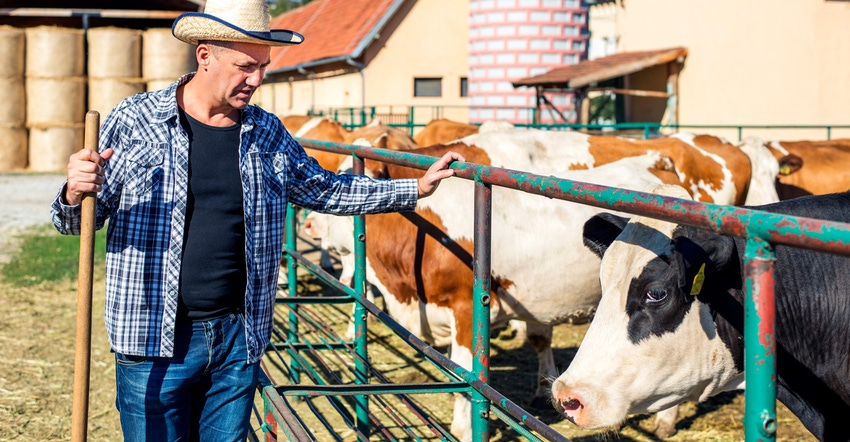April 9, 2020

Webster’s Dictionary defines fear as “an unpleasant or strong emotion caused by anticipation or awareness of danger.”
The current pandemic caused by COVID-19 has many farmers frightened about the terrible things that could happen to their farms and families. However, farmers cannot become frozen in fear. Fortunately, farmers, more than most people, are used to dealing with adversity and things beyond their control. Farmers need to mentally prepare for the challenges they are facing. They must remember not to minimize the risks that COVID-19 presents; however, they must not overreact to those risks either.
Take control
There are several things a farmer can do take control of the current situation. Farmers should focus on their personal safety and the safety of their farm workforce. For example, farmers should safeguard their farms so they do not spread the coronavirus. To the extent possible, farmers should practice social distancing and limit contact with the general public. As an employer, farmers should also educate their farmworkers on the best practices they can collectively take to stay safe and healthy — both on the farm and at home.
Second, farmers should educate themselves about economic impacts of the coronavirus, and then, take action. The government is providing assistance to farmers to mitigate the economic impact of the coronavirus. Farmers need to familiarize themselves with the programs being offered — such as Paycheck Protection Program and Commodity Credit Corporation loans — by agencies such as the Small Business Administration and the Farm Service Agency. When applying for any program, farmers should always remember to do the following:
Review all of the information, such as eligibility requirements.
Answer all questions completely.
Continue to monitor and track the status of the application.
Investigate other sources of assistance as well as the ones applied for.
The current pandemic also presents unique challenges for the farm employer. Farm owners need to make sure their key farm managers are all on the same page about how the current situation is impacting the farm. In most businesses, employees gather around the water cooler (at dairy farms, it may be the milk cooler) to tell stories. Farm managers need a collective, clear and consistent message to give their employees and to put them at ease.
Farm employers also need to educate themselves about the legal requirements of the coronavirus under employment laws, such as the Americans with Disabilities Act and the Family and Medical Leave Act. For example, under the ADA, a farm employer can require that a particular employee be tested for COVID-19 and/or leave work. However, the farm employer cannot disclose to other employees the particulars of the employee who has been exposed or infected.
Finally, farmers need to take care of their own physical and mental health needs. Farmers should focus on positive thinking through prayer or meditation. Also, farmers, more than ever, need to rely on one another. Now is the time to connect, not disconnect. The farm community will get through this together. As the author Brian Brett once wrote, “Farming is a profession of hope.”

Read more about:
Covid 19About the Author(s)
You May Also Like






